all about canadian books
on YouTube
If you LOVE books...I interview new & established authors to find out the
author's story (SO fun to get to know them) & the story behind their book.
|
One of the most fun aspects of writing…besides spending the day in my imagination is the time I devote to character development. I LOVE this process. From finding the ‘perfect’ name, deciding what they look like to defining all the aspects of their personality. It may be fun but it’s also important because it helps you develop interesting and compelling characters whose jobs are to help drive the plot of your novel. And, to do this as the novel’s creator you need to know what motivates your characters. You also need to have characters who are believable AND memorable. Characters who readers want to invest their time in so they will actually read beyond the first few pages of your book. Yes, character development is important. Character Development Tools If you google ‘novel character development’ you will be inundated with tips— 207,000,000 to be exact. There are templates, questionnaires, worksheets and charts—holy smokes—it’s OVERWHELMING. Bear in mind what works for one writer, may not work for another. There is no right or wrong process you need to find what works best for you. Personally, I like to keep it simple and I’ve found that a character development chart works best. For each character, I brainstorm following elements.
If your brainstorming has come to a screeching halt, here is a link to tool that I think is great. WD Character Development Cheat Sheet Upon completion of this process, you have a clear picture of who your characters are and how they will behave so you can write them accordingly. The Good, The Bad & the Ugly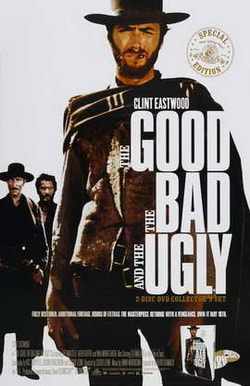 If I may add…to ensure your characters are memorable you should include the good, the bad and the ugly personality traits. You want your characters to be multi-dimensional; after all no one is perfect and besides perfect would be boring. One of the most memorable characters I’ve had the pleasure to create was Isra from Beauty Beneath the Banyan. She is a strategic woman who was in prison for murdering her husband. Certainly, not close to my personality which was what made her so 'fun' to write. Who was your favourite character to write? Character Development at its Best Alan Bradley is a master at character development. Here's an excerpt from his novel The Weed That Strings the Hangman's Bag:
0 Comments
Do you want to write a novel but have no idea what to write about? Not to worry, you are not alone. Look no further. You don't have to leave the comfort of your home, the answer is in your bookshelf. 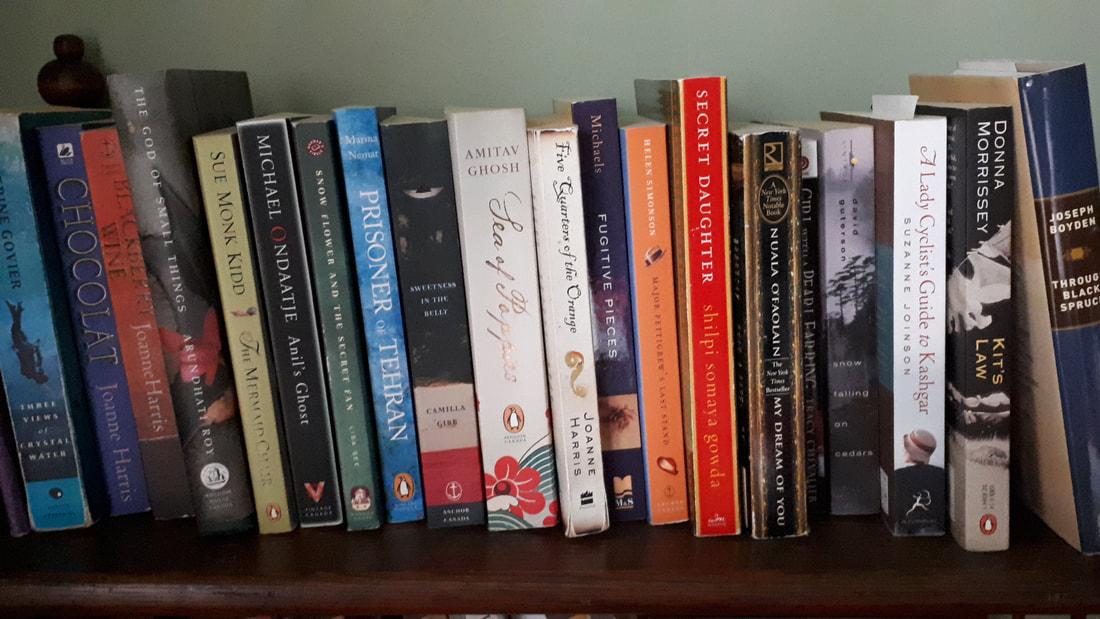 Some more of my favourites. Some more of my favourites. It's All About You Write the book you want to read. This is a natural fit. Writers are avid readers and our bookshelves are brimming with treasures that transport us into our imagination. In the era of decluttering, I'm willing to bet those shelves are now home to only your favourites; this reveals EVERYTHING about the type of book you can write. What's on your bookshelf? OK...now it's time for you to walk over to your bookshelf and have a peak at the genre(s) that fill those shelves. The rows of books gracing my shelves dip in the mystery genre. I adore the "Queen of Crime" Agatha Christie, Alan Bradly's Flavia De Luce, the precocious 11-year-old sleuth from Bishop Lacey and Canada's Louise Penny's Chief Inspector Gamache who lives in the fictional village of Three Pines. (Can I just say, I'd love to live here and eat buttery croissants and drink steamy cups of cafe au lait at the local bistro). My shelves are also stuffed with fiction novels set in exotic settings such as...
Dig Deep What are your interests? Make a list. Travel, history, human rights, yoga, cooking are a few of mine. As you can see from the previous section, these interests show up in the type of books I read. i.e. I love to travel therefore, most of my books take place on foreign soil. I also have a BA in History and many of my books are historical fiction. Do you see a pattern in your choice of books? You will, you read what interests you. This is your starting point. Dig into these interest. You can transform them into a book. For example, my book Tears from the Sea is set in Thailand and off the coast of Myanmar (formerly Burma). My heroine is a sea gypsy whose family dies in the tsunami and she is swept up into the world of human trafficking. Notice how my interests lineup. Exotic setting (travel), tsunami (historical event), human trafficking (human rights violation). Squash that Negative Voice
After inspiration has struck and you've concluded you would like to write a mystery book about gardening, if a little voice shows up and says, "You can't write a book about gardening, you've never had a garden." I'd like you to squash that little voice. I had too. The little voice came to me and it said, "What do you know about human trafficking? You can't write a book about that." If I can do it, so can you. DO NOT let this little voice be a creative road block. What you do not know can be learned through research and consulting experts. Venture into the world of the unknown and immerse yourself in pleasure of learning something new. Besides, you never know what you will find, I'm sure you'll discover little gems of information that will help shape your novel's plot. Your Soul Needs to Eat Not convinced?! Here's why you should embrace your interests: 1. Writing a book is hard work and requires discipline. As a writer, you will be spending a lot of time alone and in your head. If you're going to embark on this journey you want to enjoy it. How do you do this? You write about something that feeds your soul and, the only way you're going to feed anything is if you're interested in what you are writing. I'll say it again...embrace your interests. 2. If you write about what you are interested in this will become VERY clear in your writing because your passion will shine through. When your creativity is ignited the quality of your work is elevated (Important!). You've got an idea for a novel, click here for some tips to help you get started. Happy Writing! What's on your bookshelf? I'm Going to Write a Novel After living in Indonesia for a year my teaching contract finished. Like so many other English as a Second Language instructors the world was now open for me to explore and explore, I did. I embarked on a six-month adventure which started in Singapore and I worked my way north up through Malaysia, Thailand, Cambodia, Vietnam, Laos and Myanmar. I fell head over heels in love with this pocket of the world and its people. During my travels I was one of many foreigners present in Southeast Asia when the December 26, 2004 tsunami struck. Thankfully, I was not adhering to a tight travel schedule and was not on Ko Phi Ph for Christmas as I had originally planned. But I had met other backpackers who were heading that way and wondered what became of them. When I eventually landed in Bangkok, there were notice boards everywhere that had pictures of fellow backpackers who were missing. It was devastating to think of all the families who were trying to locate loved ones. Hence, I became inspired to write about the plight of the tsunami's victims—not from a tourist’s perspective, but a story about a local survivor and how the catastrophe had altered their life. How to Create a Novel Outline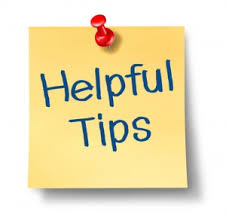 When I returned home and sat down to write my novel. I was very naive which as it turns was a good thing. I was not worried about how to get published or would the novel be good enough. I simply wrote because I wanted too and because I felt I had something important to say. Before I commenced, I developed an outline which was invaluable to the construction of the novel as it gave me a solid foundation to develop my work. It also helped to break the novel into pieces so the prospect of writing it was not as daunting. To assist with the development your novel, please find below 5 tips to get you going on your novel's outline: 1. Brainstorm. This is the fun part. You have an idea for a novel so roughly sketch out all your ideas regardless of how random they may seem—you don’t have to use all of them but get them down because you never know…I suspect there will be a little gem or two in there. Consider: characters--Who is the protagonist? Antagonist? Where's the setting? What's the conflict? How does it resolve? 2. Step back. and examine all your brilliant ideas. At this stage, I like to group my ideas into three sections. Keep it broad, for example what content would you like to include in the beginning of novel (conflict & rising action), middle (climax and falling action) and end (resolution). 3. Refine and Brainstorm again. Look at your sections and further divide them into chapters. For each chapter, include a list of ideas in bullet point form of all the content you want to include in that chapter. Again, the idea is to put everything down, do not limit your brain power. 4. Dig a little deeper. Each chapter has a job and that being to build and advance your plot. Examine your outline for each chapter and identify for each: a.) What is the purpose of this chapter? b.) Did you accomplish it? If your chapter does not do its job, rework so that the chapter serves a purpose. As you write your novel, refer to the outline as it will be instrumental in the construction and flow of your work. 5. Be flexible. Much like my travel schedule, my plot outline was flexible. I found that as my acquaintance with my heroine deepened, I discovered she might not respond to a situation as I had originally planned therefore, I needed to tweak a chapter. And, as my research was ongoing, I would often uncover something interesting and want to work it into the plot. This flexibility allowed me to develop a stronger and more interesting novel. Your outline is done...GO FOR IT! DON’T WORRY what you’re going to do with the end-product and enjoy the journey of getting there.
Next step, your characters. Please check out my post that tackles character development. Image Source: phys.org and google Don't Worry About What People Will Think One of the most important lessons I've learned about writing is to be true to my character’s voice AND, not to worry about what 'people' will think. When I was writing Beauty Beneath the Banyan (BBTB) one of my biggest regrets was my inexperience lead me to compromise this principle.  Be True to Your Character One of my male narrators was an American Raven fighter pilot stationed in Laos during the Vietnam War. These pilots flew clandestine missions in America’s Secret War and unlike Vietnam where the pilots had to adhere to strict ‘Rules of Engagement,’ the Ravens were the cowboys of the airways where no such rules existed. I had a fantastic time writing this mavericks storyline. He was a faded jean, untucked loosely buttoned Bermuda shirt, cowboy boots wearing kinda guy who was shall we say…was a little rough around the edges. In line with his personality, his language would be just as rough. Raven was the character who provided me with an opportunity to use all the bad words I had collected over my life time.  Image Source: Hmong American Experience Image Source: Hmong American Experience Embrace the F-Word I did play with the ‘naughty’ words to a certain extent, but I could not bring myself to incorporate the F-word into Raven’s vocabulary. This was unfortunate because Raven would have used it and, he would have used it A LOT—especially given the war time setting.  When I was constructing Raven’s dialogue the F-word did make an appearance on more than one occasion in my head, but it never made its way to the computer screen. Can I just say…for me it was one thing to say the F-word out loud and quite another, to actually bring myself to write it. I couldn’t do it. Recollections of being a little girl who learned this was a VERY bad word and it should never be said, played through my mind as did…OMG! what will my Mom and her book club have to say about this? Sooooo my censor won, and Raven’s vocabulary did not include the F-word. For more information about how to turn-off your internal censor, please click here. Don't Ignore Your Character's Voice My advice to writers is to turn off the filter and write your character true to their voice. Do not let your censor get in the way of developing your character's voice. DO NOT, I repeat DO NOT, do what I did to Raven—I regret not having the confidence to have written Raven dropping an F-bomb when he felt like it. Have you ever ignored your character's voice? Don't Use Your Words As writers, we love our words. We spend our days with words and we love playing with them. We also become very attached to words—I know I do. Often, when I'm reviewing a passage, I find myself thinking geez, that's a great word and I'll give myself a little pat on the back. But this is where I need to put on the brakes and consider...just because I love a word, it doesn't mean that my character would use it. During the editing process, watch out for vocabulary or phrasing the jumps out at you as being 'your word(s).' Ask yourself...is that a word my character would say? If it's not, you have to replace it with a word your character would have in their vocabulary. This is critical for the authenticity of your characters voice. I love it when artists share their behind the scene stories about how a song came together or provide a peak into what inspired them to write their novel. Because I love it so much I wanted to do the same. Along with a daily reading from Beauty Beneath the Banyan (BBTB) on my YouTube Channel, I will also give a glimpse of what ignited my creativity when the novel was coming together. #stayathome, #washyourhands and #staysafe. Tuesday's Tips I made SO many newbie mistakes when I was writing my novels. Therefore, every Tuesday, I will post author tips and share these lessons so you don't make the same mistakes as me.  A BIG congratulations! You’ve finished your manuscript and now it’s time to look for a publisher. Yikes! Actually…it doesn’t have to be yikes, with a step-by-step query plan in place—what may seem daunting is now a manageable task. To assist you with your quest, I’ve broken the process down into the following steps and added some useful tips to help you find a publisher: Step#1: Determine your novel’s genre.Before you send your manuscript out into the world, the foundation of your search is dependent on getting your manuscript into the right hands. Publishers do not accept anything and everything—they specialize in genres. Therefore, you must send your manuscript to a company that publishes materials in the same genre of your work. When I began my quest, I quickly learned there are A LOT of genres beyond the fiction and non-fiction classification. A small sample of these categories includes: thriller, mystery, romance, gothic, mainstream, literary, commercial, biographical. Perhaps, you already know where you fit and that’s great! But for those who don't, please click here for a list of categories and their definitions. Step#2: Create a target list.Research. Research. Research. Create a list of the company’s that publish books like your manuscript and rank them according to their compatibility #1 being a perfect fit and #2 good fit. You can create your list in Word or Excel or whatever platform you like. One of my favourite strategies to help with this ranking system was to go to the bookstore to see who was publishing work that was like mine. This exercise not only got me away from my desk, I found it inspiring to have a novel like mine in my hand. If you really dig into the book-shelves you soon notice—the same publisher(s) will keep coming up. And, voila these are the publishers you want on your target list. There are also a variety of tools available to help you with your list. I found The Writer’s Market a valuable resource (US & CDN info) and the Canadian Author’s Association has an extensive listing of Canadian publishers with links to their websites. And, of course google is your friend…for example, search google for 'UK Publishing Companies' or 'US Publishing Companies.'  Tip: To help with your ranking, peruse through the publishing companies’ book catalogue and their new release sections and ask yourself…do they publish material like mine? Tip: when you are compiling your list, note what each of the publisher’s submission guidelines are as they do vary from publisher to publisher. For example, your list can be a chart with the following headings: company, rank, submission guidelines. Step#3: Develop your submission materials.In the competitive industry of book publishing you must put your best self forward to get noticed. It is critical to take the time to develop an out of this world query letter/email and submission support materials to grab the publisher’s attention. Support materials may include: synopsis, chapter outline, author bio, list of publishing credits.  Tip: Unfortunately, there is not an industry standard re publisher’s submission guidelines. Therefore, you must be careful to ensure you are sending the publisher what they have requested. For example, some publishers will request a short synopsis (1-page) while another publisher may request a long synopsis (5-pages) and another may not want a synopsis. Fortunately, a publisher’s website will have a submission guideline’s page which clearly indicates the materials they want to receive and how they want to receive them be it email, mail or through an online submission form. Tip: ONLY send publishers what they are asking for. If a publisher has requested the first 20 pages of a novel ONLY send them 20, you are not being helpful by sending them 85 pages. Publisher’s are the experts and they inundated with queries—they know what they want—you don't. Tip: based on your target list, you have an overview of what submission documents you need to develop. To start the process rolling, rather than develop every document before you even begin the query process you could develop the core requirements (query letter) and send to publisher’s who only require a query and sample pages. And, then develop the outstanding pieces. Step #4: Keep track of your queries.I recommend the first wave of queries be sent to your #1 perfect fit publishers, they are after all your best fit therefore, they should be your priority. You can follow up with the second wave of your #2 good fits. There’s a lot going on…to help keep you organized, I recommend you expand your target chart so that it includes the following information.
This document will be an integral tool during your quest because at any time, in a glance, you will know who your target publishers are and the status for each company query. The BIG question...Do I need an agent? I'm sure you're wondering...DO I NEED AN AGENT? Although, an agent's expertise is invaluable and they have access to the big publishers (a BIG bonus indeed), getting an agent can be even more frustrating than getting a publisher. It is VERY competitive therefore, many authors publish their work without one--I did, and according to The Writer's Union of Canada approximately 80% of published Canadian writers do not have an agent. How do I find an Agent?If you want to look for an agent WHY NOT?!. I recommend looking for an agent and a publisher at the same time. The same process and tools outlined above can be applied to your search for an agent—you're simply changing your target. Here's some links to help you get started Canadian literary agents and US literary agents. I also found the Agent Query search tool to be very helpful.  To find an agent who is a good fit for your work, look in the author acknowledgement section of novels that are 'similar' to yours. Here, you will find the writer's shout out to their agent. Ta-da this is who you should query. Be sure to mention that you are querying the agent because of their work with this author. This demonstrates that you have done your homework. Agents like it when you have done your homework and first impressions count in this competitive landscape. I hope that I've been able to ease some of the yikes out of your mind. Now, for my little pep talk...You've got this! Formulate your plan and proceed confidently. Most important of all... BELIEVE in yourself and your work. Best of luck to you.
If you have any questions, let me know. Image sources: Google Images and Writer's Edit Do you remember when your writing was going well? Creativity in Full Bloom! Creativity in Full Bloom! Thoughts were pouring out of your head so fast your fingers could hardly keep up. You were in the zone. Your fingers were flying across the keyboard—words, sentences, paragraphs, pages upon pages of inspiration was falling out and you’d caught it all. And then, came that beautiful moment after the flood, tired hands resting on the keyboard and you thought…WOW! Where did that come from? That was awesome. I am BRILLIANT. As a writer, there is nothing more exhilarating when inspiration is flowing. The brain adrenaline high is fantastic. But, unfortunately, much like after eating copious amounts of sugar, it can followed by a crash...when future sessions at your desk are a little light on the brilliance and heavy on the crap. Bring Back the Brilliance A Creative Droop A Creative Droop When you find yourself smack in the middle of a creative drought, there are days when you are ‘tasked,’ and I do mean tasked with writing—it becomes a chore to pull out the words. So, what do you do? Perhaps, you venture online…check the weather 4 times an hour, peruse Lainey Gossip for the latest update on Baby Sussex and then you pop on YouTube to find yourself some chakra cleansing, meditative, stress relieving music to put yourself back in the zone. Does it work? I’d love to say yes! every time I’m in a rut all it takes is a weather update, some inspirational music and a hit of pop culture, but I’d be lying. The reality is more of a two-part answer. The Reality Check-In
Tackling the Big StuffSometimes, these writing ruts will last a few hours, days or longer. Regardless, of the duration they are painful. To help pull yourself out of these biggie droughts the most important thing is to…BE KIND TO YOURSELF. We are not kind to ourselves. We kick ourselves when we’re already down. We curse our lack of brain power. We heap on the pressure to try and get the creative flow going. These cruel knocks aimed at our resting creative spirit do nothing for productivity in fact, they hamper it. Three Steps to Get Out of that RutOMG…thanks for that?!!!??? (not). How the heck am I supposed to be kind to myself? My response is this...may I recommend the following 3 steps to self-kindness:
Step#1: Add a little sunshine. To create a little joy and reduce the stress in your life try to incorporate as many of the following elements—spend time outdoors, pretty-up your work space with flowers or something that makes you smile, exercise, eat well, free write, listen to music, dance, read, talk with other artists, attend a community theater performance, host an artist talk, join a book club, listen to other artist’s podcasts and TED talks. This step should be ongoing. The key is to feed your happiness which in turn fuels your creativity. Step#2: Give yourself a mantra. Mine is…I am. I can and I will. Place your mantra on your desk. It doesn’t have to be framed; it can be as simple as a yellow post-it-note—as long as this little reminder is located somewhere you can see it everyday. Kick start your day by saying your mantra out loud firmly 3 times. Still not feeling it? Write out your mantra 10 times. Frequency of saying/writing will help you believe in yourself and your abilities. Step #3: Shut down that pesky little voice that’s dragging you down. Catch your negative thoughts as they fall out and reframe them as an affirmation. For example, turn This writing is terrible, why do I even bother? into Everything I write will not be brilliant but this is great practice. The brilliance will come. The more you do this the easier it gets. Reframing your mindset injects positivity which in turn lifts you up. The art of practicing self-kindness is a process and once you dig in your writing mojo will come back. You will be in the zone and your fingers will once again be flying across the keyboard. What helps you get out of a creative funk? While you are writing, there's a little force that can make an appearance and create havoc with your creative process. Do any of these statements sound familiar?
It's your filter. As soon as you hear it, you are faced with a choice: A.) you turn it off and continue with your work or, B.) you listen to it and alter your work. Well, I’m here to tell you…DON’T LISTEN because that darn filter is destructive. To help you ignore it, and choose Option A, here's a pep talk for anyone who is suffering from self-doubt (that lovely little by-product of your filter). The Pep Talk The filter always worries about what other people will think. And who's kidding who, as creators we want people to not only like our work—we want them to LOVE it. But the reality is (if you can believe it?! 😊) not everyone is going to like what we do. Art, in any form is subjective and it is because of this, as an artist, we need to create for ourselves and the only way we can do this…is to turn off the filter and GO FOR IT! I’ll say it again. I’ll shout it from the mountain top DON’T WORRY about what people think. People are going to judge your work. People are going to have very definite opinions about your work…and yes, some (but not all) of these opinions will leave you reeling because it feels like someone ripped your heart out and stomped on it five times. It hurts. It sucks. But this is the reality of releasing your work out into the world. But don’t EVER let this stop you from doing so. Be tough. Be brave. You can do it. Trust in yourself. Trust in your work. And, whatever you do…don’t ever change the content of your work because you doubt yourself. If Stephen King turned on the filter, we might not have The Shining, Carrie or Pet Cemetery. Or, what if EL James turned on the filter…would 50 Shades of Grey be the runaway success it was? Embrace Your Inner VoiceWhereas last week’s advice to writers was to turn off the filter and write your character true to their voice, please click here if you missed it. This week, I wanted to build upon that sentiment because our internal censor is a biggie. I will reiterate… DO NOT, I repeat, DO NOT let your filter get in the way of your voice. Embrace your inner Stephen King or your EL James and be confident with who you are and what you write.
Have you ever changed your work because you worried about what people will think? You’ve poured your heart and soul into your novel, worked even harder targeting and querying publishers AND FINALLY all your effort has come together and a publisher has agreed to take you on. Yippee! pat yourself on the back you’ve entered a world that is the equivalent of being drafted in the NFL. 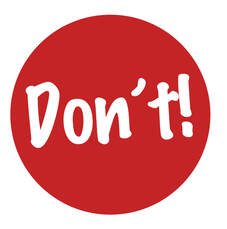 You may be in, but the game has only just begun. So, fasten your seat belt you’re a rookie in this foreign place and marketing your work will be just as challenging as getting through training camp. Well, it was for me and my background is communications--seriously. Do NOT Do This!To help get you succeed, please don’t make the same mistakes I did when I marketed my first book. If I could do it all over again, I would not do the following:
You've got this and I've got this too, when book #2 launches I'm going to the play it smart this time round! Image Source: https://linguist.co.in  Image Source: Steve Johnson/ Unsplash Image Source: Steve Johnson/ Unsplash I don’t know what to write! I don’t have anything interesting to say. I don’t know why I even bother…no one will ever read it. This is stupid… What to Do When You're Hit with a Creative Drought I’ve heard it from other writers and all the statements above have certainly spilled out of my mouth on more than one occasion and, will likely spill out again should I be faced with another creative drought. So, what’s one to do when the thought of facing a blank page is both unbearable and intimidating? Show up. Sit your butt down in your chair and just write. It doesn’t have to be a critically acclaimed piece of work—it just has to be yours. Embrace the act of throwing some words down on that page and don’t worry where they came from or how they fit together. No pressure. No expectations. Tools to Kick Start Your Creativity Yikes, I’ve shown up…now what?! For a little jump start, two of my favourite tools to help get those creative juices flowing are writing prompts and free writing. 1. Writing Prompts If I’m really blocked, I quite appreciate not having to come up with an idea for a prompt, therefore I tend to utilize what’s already been developed; there are some fantastic writing prompt ideas online. Some of my favourites include:
May I suggest, having a selection of writing prompts on hand. Then they’re ready to go when you are. Please click here for some more ideas. 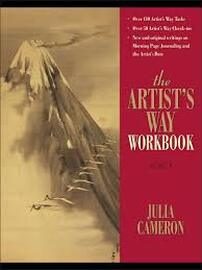 2. Free Writing I was introduced to the concept of free writing when I committed to Julia Cameron’s 12-week program the Artist’s Way. The premise of this program is to help unblock artists. It’s fantastic and I highly recommend it. One of the tools Cameron recommends is the morning pages/free writing. I found the process of free writing life changing. Every morning before I launched into my day, I sat down with a cup of bean in hand, a journal that I had bought specifically for the Artist's Way and a purple pen. The task was to write 3 pages of whatever popped into my head. Now, there were many a day when I filled up an entire page (or three) with “I don’t know what to write," or I complied my ‘To Do’ list for the day or a grocery list. Many, many days. But that was OK, the goal was to 'just write.' Kindly note, you can use your computer if you prefer. On some occasions I do, but I will confess I find the old-fashioned pen and paper liberating. Try both. Alternate. No rules. If you would like to purchase a copy of the Artist's Way please click here. I cannot emphasis this next point enough, do not worry about the quality of your work when using with these tools. The idea is simply to get that writing muscle working. Much like going for a run, there are days when you feel like you can run forever and other days when you may wonder why you even bothered putting your runners on. I'll keep saying this until you believe me...there are no rules, the idea is to experiment and have some fun. Your writing muscle will strengthen. If you walk away from your desk tomorrow without an idea for a best-selling novel be kind to yourself—the most important thing was to show up and try; the quality and ideas WILL come. You will not remain blocked. Happy Writing! How do you tackle writer's block? |
Blog Archives
June 2024
Categories
All
|